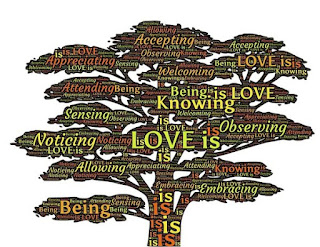There's more and more talk (justly so, in my opinion) of global warming. This effect, though not new (NASA states that "just in the last 650,000 years there have been seven cycles of glacial advance and retreat, with the abrupt end of the last ice age about 7,000 years ago), still engenders dramatic (even catastrophic) changes. And the increase in temperatures we're seeing now, is the most rapid one the world has seen thus far (the increase in CO2 levels that caused the Great Dying, aka the greatest extinction event ever seen on Earth, was only 1/10th of the current increase rate we're seeing now).
One of these changes, as studied by Jennifer A. Sheridan and David Bickford, is the change in body size. Or, to be more precise, its shrinking. Which, as stressed out in their paper, "could negatively impact both crop plants and protein sources such as fish that are important for human nutrition." An ever more pressing issue as the global population keeps expanding, despite doing so at a slowing rate.
Here are some interesting details from their paper:
- The increase in temperatures and the resulting change in rain patterns will affect every organism on the planet.
- However, although each organism should see "shrinkage", this won't happen all at once nor equally across all species, which means that our whole ecosystem will be even more out of balance.
- What will shrink? Everything, including:
- Oysters, scallops, and corals (some of which may even disappear entirely since they wouldn't be able to form exoskeletons anymore).
- Phytoplankton, which is the food base for most marine life, and, incidentally, is also the plant that absorbs most of the CO2 on Earth.
- For every 1°C of temperature increase, the following drops in mass/size are expected (as examples):
- fruit: 3-17%
- marine invertebrates: 0.5-4%
- fish: 6-22%
- beetles: 1-3%
- salamanders: 14%
- The downsizing trend has already started, by the way, and evidenced through studies of creatures in the wild as well as those subject to commercial harvesting. These organisms include polar bears, red deer, toads, squirrels, birds, plants, sheep. Scientists and farmers have also seen that cows follow the same trend in hotter temperatures, thereby also producing less milk.

Source: Journal of Dairy Science - Evidence of such massive size reduction is also supported by fossils, which show, for example:
- Bees, wasps, spiders, beetles, ants, and cicadas shrank by 50-75% in size almost 55 million years ago, when global temperatures suddenly jumped 3-7°C and rainfalls dropped by ~40%.
- Similar shrinking was observed on small mammals during other global warming periods:
- An early horse got 14% smaller (granted, it wasn't a very big horse to begin with, going from the size of a dog to that of a cat)
- Early primates got 4% smaller.
- Other changes to expect from global warming:
- Melting glaciers.
- Rising sea levels (definitive flooding of land).
- Acidification of all water sources--marine and fresh.
- Increased ultraviolet-B radiation (risks to humans include: skin cancer, reduced immune response to Herpes, skin lesions, harm the spleen, eye problems; risks to plants include: impaired photosynthesis so less oxygen's produced, size reduction, drop in overall production, increased susceptibility to disease, changed flowering pattern).
- Increased fire frequency.
- Less rain/precipitation globally; and for those places with more rainfall, will see it happen all at once, with long stretches of water limitation.
- Subtropics will get drier while much of the equatorial and high-latitude regions will get wetter (fewer habitable areas for humans)--linked to points 5 and 6.
- Nutrient loss (either to excessive soil nitrogen loss through fires, or leaching due to too much rain at once).
- Extermination of many species that can't adapt quickly enough.
I know. Lots of data to take in. And scary. A few percentage points might not seem like much, but they can mess up the balance of life on earth completely.
Already, as reported in The New Yorker in 2018, the number of chronically-malnourished people and the number of children forced into labor has started to grow again, "driven in part by an increase in conflicts and climate-induced disasters." And that's "only" with a 1°C increase over pre-industrial temperatures. The article also mentions other effects from global warming that we're suffering from right now, such as: an increase in Lyme disease (Are there ticks on that beautiful green lawn? Should I still have my BBQ party?), proliferation of jellyfish (paddling among a cloud of medusas while out surfing doesn't sound so cool).
It's going to happen, it's happened before. The question is, by how much will temperatures rise, how quickly, and will we be ready to face the consequences (or have solutions to help protect our flora and fauna as much as possible) when the time comes?
 |
| N. America after sea levels rise due to ice melts |
 |
| Europe after sea levels rise due to the melting of the ice caps |
Sources:
NASA - Global Climate Change
World Population Clock
Shrinking body size as an ecological response to climate change, by Jennifer A. Sheridan and David Bickford
Global warming shrank animals in the past, article in USA Today, March 18, 2017
How Extreme Weather is Shrinking the Planet, by Mill McKibben for The New Yorker, November 26, 2018
What the world would look like if all the ice melted, National Geographic
Ultraviolet Radiation: How it Affects Life on Earth, NASA - Earth Observatory















